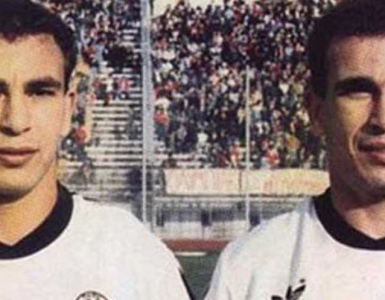CONTRACT: Struggle icons have lost lives to contract killings
By Jo-Mangaliso Mdhlela
Izinkabi, an isiZulu word, ; literally means a herd of cattle. In its ordinary daily use, it connotes no harm, and its meaning has never been understood to make reference to humans, upright or crooked.
However, used in a political context, the word , in the latter years of our democracy, has morphed into a language associated with political killings, starting off as a form of inter-party warfare between then the Iinkatha Freedom Party and, pre-1994, the African National Congress-aligned United Democratic Alliance, especially in KwaZulu-Natal (KZN). The killings also spread to parts of Gauteng.
While political assassinations are rife within the ANC, they do often rear their ugly heads among various parties, including the IFP, EFF, MKP, and the National Freedom Party, among others.
There is a long-held belief within the ANC that it was Tokyo Sexwale, then premier of Gauteng, who in the 1990s first alerted his comrades to the prevalence of izinkabi in Thokoza township, Ekurhuleni – a township which was at the centre of heavy political rivalry and fighting and killings between the ANC and IFP in the 1990s.
Sexwale, would, as the legend goes, whisper into the ears of some of his comrades, including his dearest and now departed comrade, Sam Ntuli: “I have never known, outside of KwaZulu-Natal, of a place that teems with as many izinkabi as there are here in Thokoza. They crawl in every street and nook”
The legend goes on to say that after uttering these words, Sexwale would chuckle with cynicism, to express his distaste of the level at which black people had allowed themselves to be “bought”, Judas-Iscariot type, to commit dastardly deeds for political gain.
Sadly, it was to be the same izinkabi Sexwale talked about, that would waylay and brutally and violently pump 11 bullets in the direction of Ntuli’s car killing him in Thokoza in 1991.
At the time of his death on September 29 1991, Ntuli was the chairperson of the Thokoza Civic Association, and the general secretary of Civic Association of Southern Transvaal (CAST), the forerunner of the South African Civic Association Organisation (Sanco).
Ntuli’s assassination in 1991 should not only be seen in the context of prevailing political terrain of the time, but rather as a continuum, made possible by the inability to use methods such as mediation to thrash out difficult differences.
The assassination of Communist Party general secretary Chris Hani in 1993 should be seen in that context too.
The country knows that it was Janusz Walus, the convicted Polish murderer, who pulled the trigger to end Hani’s life, then a shining SA Communist Party leader destined to play a prominent role in the new life of political democracy in South Africa.
To this day, however, the country still believes that Walus was the hired gun. His paymaster will probably never be known, and those who may be in the know, will go to their graves with that knowledge.
Nelson Mandela, as negotiations to replace apartheid unfolded, was saddened by Hani’s death, and so were many South Africans, for he was seen as a practical political theorist with the capacity to help steer the new democratic country in the right direction.
Hani is dead. Ntuli is dead. Former ANC Youth League secretary Sindiso Magaqa is dead. The izinkabi’ firepower continues to influence the country’s political trajectory.
Various reports place the number of political assassinations in KZN since the end of apartheid to about 450 or more. The hiring of izinkabi for political killings continues, and has become a norm.
Ntuli, who was dearly loved in Thokoza, opposed the apartheid system, and sacrificed his young life for the course the ANC had chosen for itself.
izinkabi of a kind, possibly owing allegiance to the apartheid system, were ordered to end his life.
The killings did not end with apartheid. In 2017, former ANC Youth League secretary Sindiso Magaqa was gunned down in Mzimkhulu, KZN. Reports suggest more than 450 political assassinations have taken place in the province since 1994.
April 27 marked 31 years of democracy. Nelson Mandela’s call to silence the guns has gone unheeded. Instead, political violence has become entrenched, fuelled by factional battles and reckless leaders.
Sexwale’s words still echo: when izinkabi crawl through every street like venomous insects, democracy itself is under threat.
































